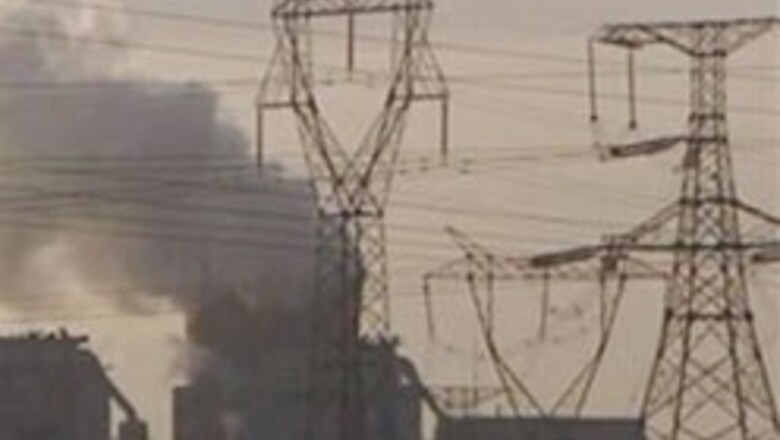
views
Copenhagen: Poor countries ended a temporary boycott of the UN climate talks Monday after getting assurances that rich nations were not conspiring to reduce their commitments to cutting greenhouse gases, European officials said.
Informal talks resolved the impasse between rich and poor nations and ended the daylong boycott, which was started by African countries and backed by 135 developing countries including China and India.
The boycott disrupted efforts to forge a pact on global warming, delaying the frantic work of negotiators who are trying to resolve technical issues before more than 110 world leaders arrive in Copenhagen later in the week. It appeared aimed at shifting the focus of the U.N. climate talks to the responsibilities of industrial countries and making greenhouse gas emission cuts the first item for the leaders to discuss.
Andreas Carlgren, the European Union environment spokesman, said both rich and poor nations "found a reasonable solution." Developing countries agreed to return to all negotiating groups that they had abandoned earlier Monday, said Anders Frandsen, a spokesman for conference president Connie Hedegaard of Denmark.
The developing countries want to extend the 1997 Kyoto Protocol, which imposed penalties on rich nations if they did not comply with its strict emissions limits but made no such binding demands on developing nations.
"We are really prepared to discuss all issues in the negotiations. It means also absolutely all issues under the Kyoto Protocol," Carlgren said.
The dispute came as the conference entered its second and critical week. Poor countries, supported by China, said Hedegaard had raised suspicion that the conference was likely to kill the Kyoto Protocol.
The United States had withdrawn from Kyoto over concerns that it would harm the U.S. economy and that China, India and other major greenhouse gas emitters were not required to take action. China is now the world's largest greenhouse gas polluter.
"We are seeing the death of the Kyoto Protocol," said Djemouai Kamel of Algeria, the head of the 50-nation Africa group.
It was the second time African envoys have disrupted the climate talks. At the last round of negotiations in November, the African bloc forced a one-day suspension until wealthy countries agreed to spell out what steps they will take to reduce emissions.
"They are trying to put the pressure on" before Obama and other world leaders arrive, said Gustavo Silva-Chavez of the Environmental Defense Fund. "They want to make sure that developed countries are not left off the hook."
An African delegate said developing countries decided to block the negotiations at a meeting hours before the conference was to resume Monday. He said applause broke out every time China, India or another country supported the proposal to stall the talks.
PAGE_BREAK
"This is all part of the negotiating dynamic, especially as you get closer to the end game," said Jake Schmidt of the Natural Resources Defense Fund.
Canada's Environment Minister Jim Prentice said the dispute was a setback to negotiations.
"We have lost some time. There is no doubt about that," Prentice said. "It is not particularly helpful, but all in all it is our responsibility to get on with it and continue to negotiate."
Scientists say global warming will cause problems worldwide, including rising seas, melting glaciers, more drought, more extreme weather and the extinction of some species.
In Washington, the White House announced a new program to spend $350 million over five years to give developing nations clean energy technology to curb greenhouse gas emissions and reduce global warming.
The program will distribute solar power alternatives for homes, including sun-powered lanterns, supply cleaner equipment and appliances and work to develop renewable energy systems in the world's poorer nations.
The U.S. share of the program will amount to $85 million, with the rest coming from Australia, Britain, the Netherlands, Norway and Switzerland, Energy Secretary Steven Chu said in Copenhagen.
British Prime Minister Gordon Brown's office said he would go to Copenhagen on Tuesday — two days earlier than planned--to try to inject momentum into the talks. His spokesman denied that Brown--facing a national election by June--was seeking any personal credit if a deal is struck.
Former US Vice President Al Gore told the conference the Arctic polar ice cap may disappear in the summer just a few years from now.
Some computer models suggest "that there is a 75 percent chance that the entire north polar ice cap during some of the summer months will be completely ice-free within the next five to seven years," Gore said.
Gore, who won a Nobel Peace Prize for his work on climate change, joined the foreign ministers of Norway and Denmark in presenting two new reports on melting Arctic ice.
Throngs of newly arrived delegates, journalists and climate activists jammed the security and accreditation lines at the conference center, forcing police to shut down the nearby subway stop.
In downtown Copenhagen, police detained about 20 people among 3,000 climate activists protesting outside Parliament.
More than 1,200 others were detained in weekend protests, although almost all were released after questioning. About a dozen were arraigned on preliminary charges of assaulting police officers or carrying sharp objects.
Police spokesman Henrik Moeller Jakobsen said 12 cars were set on fire overnight Monday, and vandals also smashed windows and threw red paint at the headquarters of the Danish Immigration Service. It was not immediately clear whether those attacks were related to the climate conference.










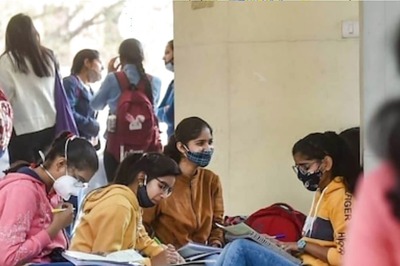



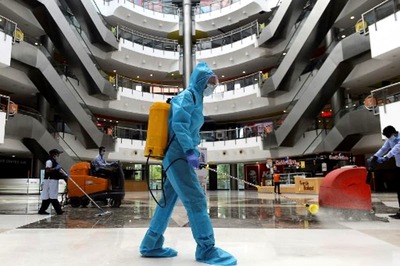


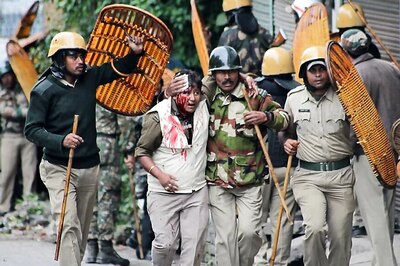
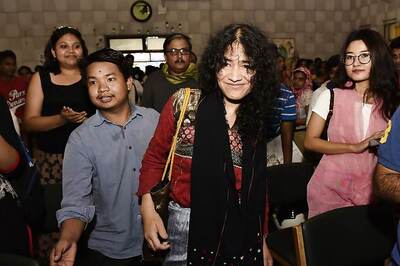

Comments
0 comment